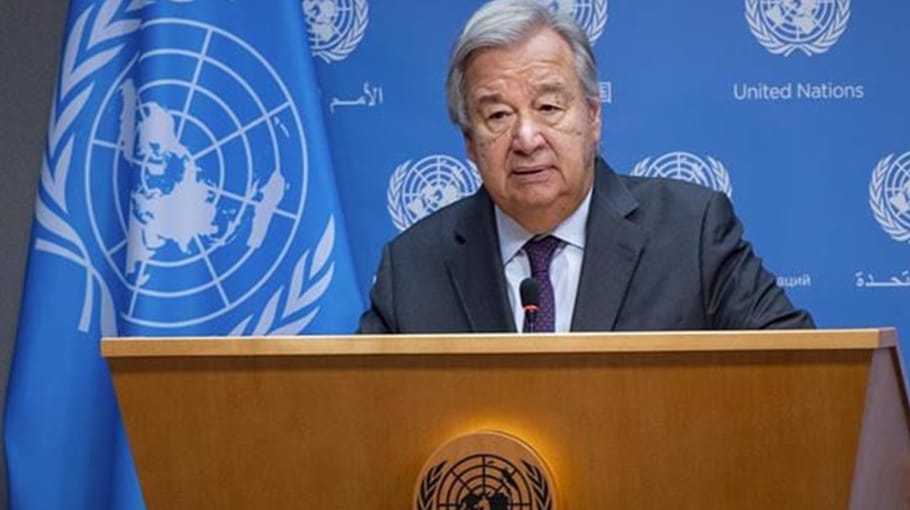In a devastating escalation of the ongoing conflict in Gaza, the region has to endure an unprecedented crisis, prompting international alarm and condemnation. UN Chief Antonio Guterres sounded the alarm, describing the situation as a “dangerous new low,” highlighting a severe water crisis in the entire territory. Essential infrastructure, including pumps and desalination plants, are critically damaged, leaving Gaza’s population with no access to clean water. The gravity of the situation reached a new peak when Israel issued an ultimatum demanding the relocation of over 1.1 million people from northern Gaza to the southern region within 24-hours.
Guterres, along with fellow UN officials, opposed this directive, deeming it not only “extremely dangerous” but practically unfeasible in the densely populated and war-torn context. Moving such a massive population, he stressed, would strain the already fragile healthcare system beyond its limits. Hospitals in the southern part of Gaza were already stretched to capacity, unable to accommodate the patients from the north. Tragically, healthcare workers had lost their lives, and health facilities had become targets, exacerbating the region’s healthcare crisis.
UN Under-Secretary-General for Humanitarian Affairs, Martin Griffiths, likened the ultimatum to a tightening noose around Gaza’s civilian population. His deep concern resonated with a global audience as he emphasized the impossibility of carrying out such a mass movement given the prevailing circumstances. Stephane Dujarric, the UN spokesman, mentioned the urgent need for humanitarian access, stressing the critical importance of protecting civilians, especially those seeking refuge in UN facilities. The situation demanded immediate intervention and protection for the most vulnerable.
International organizations, including the World Health Organization (WHO) and Doctors Without Borders, echoed the UN’s condemnation of Israel’s evacuation order. They underscored the possibility of disastrous consequences that a mass movement would have on patients, healthcare workers, and civilians trapped amidst the chaos. The UN Relief and Works Agency for Palestine Refugees reported a dire situation, with hundreds of thousands already displaced, seeking shelter in UN facilities. UN Women highlighted the plight of pregnant women, already in a vulnerable state, struggling to access essential healthcare amid relentless attacks on hospitals and clinics.
The UN’s call for respect for international humanitarian and human rights laws resonated globally. Guterres, backed by a chorus of international voices, passionately emphasized the urgent need to avert a humanitarian catastrophe in Gaza. The international community stood as a witness to this unfolding tragedy, urging world leaders and organizations to unite in the pursuit of peace. The call was not just for diplomacy but for a resolute commitment to the sanctity of human life, seeking the world to prioritize peace, dialogue, and the safeguarding of the most vulnerable amidst the serious conflict in Gaza.

